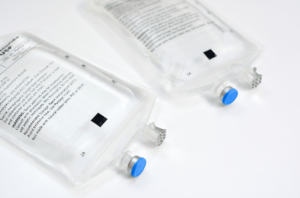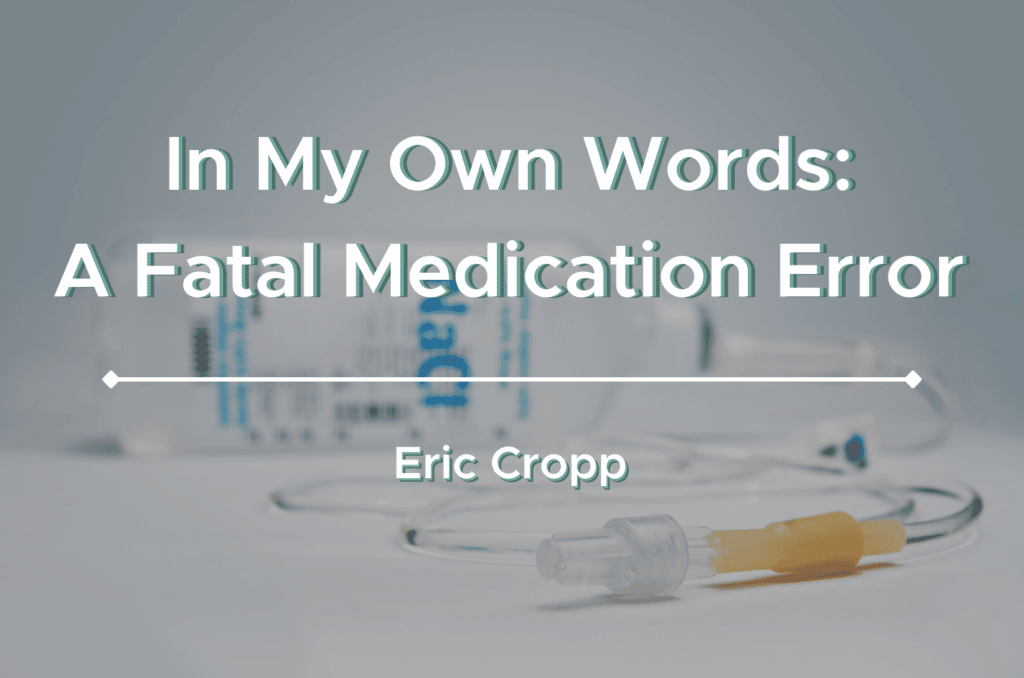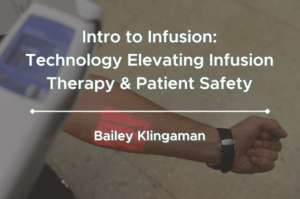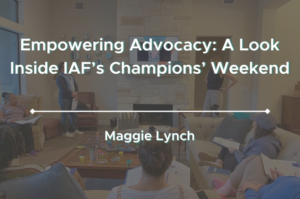In 2006, Eric Cropp, RPh lost his license, career, reputation, and more due to a fatal medication error. In his own words, Eric walks us through the events leading up to the error, the consequences, and what he thinks should be done to prevent similar events.
What happened before the error?
In February 2006, I reported to work in the early morning, at a primary pediatric hospital in Cleveland. I worked double shifts the previous two days, so I was tired when I arrived.
The hospital’s computer system had been down for ten hours prior, so I knew I was in for a busy day.
The hospital staff was in a state of panic. The phones were ringing off the hook. Nurses and doctors were calling in looking for their missing medications. By the time the computer system finally came back up, we were buried with labels printing from three different shifts.
Our pharmacy was compact; the area where we made IVs was the size of a small closet and the checking area was a 4′ x 6′ table. Within an hour the table was filled and beginning to pile up. We were running out of bins to put the finished products so many were mixed together. I spent the next hour trying to check as fast as possible.
I caught numerous errors that day, but I missed the most important: my technician had prepared a child’s chemotherapy base solution mix of sodium chloride 23 times more than what was ordered.
What was the error?
 I asked the technician if the bag I was checking was sodium chloride, but didn’t confirm that it was 0.9%. I saw an empty bag of sodium chloride 0.9% on the table and thought that had been used to fill the empty via-flex bag. After checking the bag, the solution was combined with the ordered chemo agent, checked again, and sent to the floor to be administered.
I asked the technician if the bag I was checking was sodium chloride, but didn’t confirm that it was 0.9%. I saw an empty bag of sodium chloride 0.9% on the table and thought that had been used to fill the empty via-flex bag. After checking the bag, the solution was combined with the ordered chemo agent, checked again, and sent to the floor to be administered.
When the nurse administered the fatal dose of sodium chloride, it caused the child’s brain to swell sending her into a coma. Three days later, she died.
Her name was Emily. I live every day with the responsibility for her death.
What were the consequences?
I was later convicted of involuntary manslaughter. I received six months of jail time, six months of house arrest, three years of probation, a $5,000 fine, and 400 hours of community service. I also lost my license, career, reputation, and much of my confidence.
But the worst thing of all is living every day with the memory of that little girl whose life was cut short.
I accept my role in what happened, but I am filled with regret. I truly wish I could go back and check that solution more carefully. Though I could easily dwell in the past, I am sharing my story with the hope that we can all learn from my mistake.
What led to the error?
Many factors led up to the medication error. They are common occurrences happening in hospitals and retail pharmacies across this country, every single day. If we are to avoid similar tragedies, they must be addressed.
One factor is that pharmacy technicians need better training. Most people don’t realize that techs are involved in approximately 96% of prescription compounding in pharmacies. According to the National Pharmacy Technician Association (NPTA), 92% of the US does not require technicians to have any formal training.
The technician working for me had only a GED. She didn’t know a thing about the different concentrations of sodium chloride. One positive change that resulted from this tragedy is Emily’s Law. It requires that all techs undergo training and pass a competency exam in Ohio. NPTA and the Emily Jerry Foundation are currently working on an additional bill to institute Emily’s Law nationwide.
 Another factor is having a bar-scanning system in place; my hospital did not. Almost every supermarket in the country utilizes this technology. Why not pharmacies? There are so many look-a-like and sound-a-like medications that come in small vials with tiny labels.
Another factor is having a bar-scanning system in place; my hospital did not. Almost every supermarket in the country utilizes this technology. Why not pharmacies? There are so many look-a-like and sound-a-like medications that come in small vials with tiny labels.
Errors can easily be made. There are many bar-scanning systems currently on the market, which can act as a safety net. I truly wish one had been in place that day.
But this technology isn’t enough; pharmacists and technicians need better working conditions. Pharmacies are cramped and the workload is often heavy. Studies have shown that crowding and dim lighting often lead to mistakes.
Additionally, interruptions, filling too many prescriptions, and long shifts frequently cause errors. Believe me, I, and many pharmacists, have said a little prayer on their way home that an error didn’t slip by.
Finally, I wish I had been able to talk to the family directly when the error occurred. I wasn’t given the chance to personally say I was sorry. The hospital management met with the family and I was advised not to talk to them. There exists a culture of silence and bureaucracy and it must be changed.
What should be done?
Similar errors happen every day and people continue to talk about my error; but no one has yet addressed why the error occurred and how it could have been prevented. I want to be part of changing the current system. We need to figure out how we can be supported (not prosecuted) by our hospitals and institutions.
Chuck and I want to allow pharmacists, doctors, nurses, and other caregivers to be able to come together; to discuss their own experiences, and concerns, to find support, and lastly, but most importantly, to use what we learn to make the systems safer.
We hope that by increasing dialog, improving pharmacy education, and advocating for automation and technology we can change the system for the better.
We hope you find support in this community. By coming together we will help others learn from our mistakes and hopefully create a positive change.






3 Responses
Hi Eric I am a Freshman in Mildred Elley College studying to become a Medical Assistant. This is my second degree I am working on. I admire you and I thank you for sharing your story. This truly woke me up to know and learn that serious situations such as this can really happen. You really don’t know about it until you read or hear about it. Its sad but now we are able to live and learn from past mistakes made. I came across your article because right now I am taking up pharmacology for medical assistants. And this is part of my discussion forum. I am sorry you had to go through this. Keep doing what your doing and I support you.
I know EXACTLY what your talking about! I worked in an inter-city hospital in Detroit. I have a Master’s degree, certified nationally and licensed in the state of Michigan as a technician. I have worked in all aspects of Pharmacy for 37 years so my experience is vast. Yet our shortages in staffing, rushed work environment and inadequate support from management when we present problems drove me to retire earlier than I wanted. I would double check myself and lose sleep worrying about mistakes that may have occurred either by myself or others. I too worked chemo and handled ICU patients and know how a budget driven institution can disregard safety if it strains the budget!
Keep sharing your story because it needs to be told….your life was blown to bits by a mistake that was just that. In our profession a double check system should be mandatory as well as a scan system…to prevent these mistakes. We are only human! Please keep pushing for change!
Eric I admire your courage and was so honored to meet you. Please keep speaking out for our patients and colleagues.